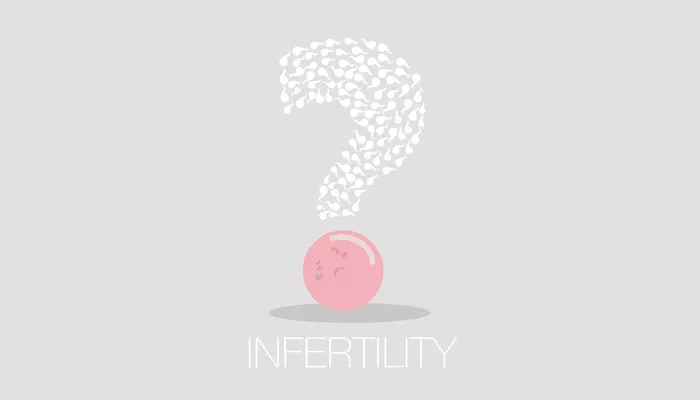Epididymitis is an inflammation of the epididymis, the coiled tube located behind each testicle that stores and transports sperm. It is a condition that can cause considerable discomfort, including pain and swelling in the testicles. One of the most concerning aspects of epididymitis, especially for men who are trying to conceive, is its potential impact on sperm quality. This article explores whether epididymitis can cause changes in sperm quality, the mechanisms involved, and the potential effects on fertility.
What is Epididymitis?
Epididymitis is most commonly caused by bacterial infections, including sexually transmitted infections (STIs) like chlamydia and gonorrhea. It can also be caused by urinary tract infections or other forms of bacteria. The epididymis becomes swollen, red, and painful due to the infection, which can lead to discomfort in the scrotum and difficulty with urination.
Though epididymitis is treatable with antibiotics, the effects on sperm quality may not be immediately reversible. In some cases, untreated or severe epididymitis can lead to complications that affect sperm health, potentially leading to long-term fertility problems.
How Epididymitis Affects the Epididymis
The epididymis is responsible for storing and maturing sperm. Inflammation in this area due to epididymitis can disrupt its normal functioning. This disruption can lead to changes in the quality of sperm. The inflammation can impair the storage of sperm or affect sperm transport, which are critical components for proper sperm function.
When the epididymis becomes swollen and inflamed, it can also cause blockages in the reproductive system. These blockages prevent the sperm from moving freely through the duct system, which may lead to a decrease in sperm count and motility. Additionally, sperm may become trapped or damaged in the epididymis, which can directly affect their ability to fertilize an egg.
Can Epididymitis Affect Sperm Count?
One of the primary concerns regarding epididymitis is whether it leads to a reduction in sperm count. A decrease in sperm count, known as oligospermia, can occur if the infection or inflammation impedes the production or transport of sperm.
Inflammation caused by epididymitis can block the ducts that carry sperm from the testicles through the epididymis and into the vas deferens. This blockage may cause a backup of sperm in the testicles, which can lead to reduced sperm output. In severe cases, the body may reabsorb the excess sperm, which further lowers the overall sperm count. The testicles, which are responsible for sperm production, may also be affected by prolonged inflammation, leading to a decrease in sperm production over time.
However, sperm count is not always directly impacted in cases of epididymitis. Some men may experience mild inflammation with little to no effect on sperm count. The impact on sperm count will depend on factors such as the severity of the infection, the duration of the inflammation, and whether treatment is received promptly.
How Does Epididymitis Affect Sperm Motility?
Sperm motility refers to the ability of sperm to move properly, an essential factor for successful fertilization. Epididymitis can lead to a decrease in sperm motility, a condition known as asthenospermia.
The inflammation in the epididymis can cause swelling that affects the movement of sperm. When sperm are unable to move efficiently, they may not be able to reach the egg, which can make conception more difficult. Motility is crucial for sperm to swim through the cervix and into the fallopian tubes, where fertilization takes place. Therefore, reduced motility due to epididymitis can significantly impact a man’s ability to father a child.
In some cases, sperm motility may return to normal after treatment for epididymitis. However, if the condition is left untreated for an extended period or if complications arise, permanent damage to sperm motility may occur.
Can Epididymitis Affect Sperm Morphology?
Sperm morphology refers to the shape and structure of sperm cells. Healthy sperm have an oval-shaped head and a long tail, which are essential for successful fertilization. Epididymitis can also affect sperm morphology, leading to a condition known as teratospermia, where sperm have abnormal shapes.
The inflammation caused by epididymitis can disrupt the normal development and maturation of sperm. As sperm travel through the epididymis, they undergo a process called spermatogenesis, where they mature and acquire the ability to fertilize an egg. If the epididymis is inflamed, the maturation process may be incomplete, leading to sperm with irregular shapes or sizes. Abnormal sperm morphology can reduce the chances of successful fertilization and pregnancy.
In cases where epididymitis is mild and treated quickly, the sperm morphology may return to normal after recovery. However, more severe or chronic cases of epididymitis can cause long-term damage to sperm morphology, potentially affecting fertility.
Can Epididymitis Lead to Infertility?
While epididymitis can affect sperm quality in the short term, it is typically a reversible condition with appropriate treatment. However, in some cases, untreated or severe epididymitis can lead to long-term damage that results in infertility.
If epididymitis is left untreated, it can lead to complications such as scarring or fibrosis in the epididymis. These complications can cause permanent blockages in the ducts that carry sperm, which can lead to a significant reduction in sperm quality and fertility. Chronic epididymitis can also affect the testes themselves, reducing sperm production and motility.
In some cases, the infection may spread to the testicles, resulting in a condition known as orchitis. Orchitis can cause further damage to the testes and sperm production. If both epididymitis and orchitis are left untreated, infertility may occur.
When to Seek Medical Help
If you experience symptoms of epididymitis, such as pain or swelling in the testicles, it is important to seek medical attention as soon as possible. Early treatment with antibiotics can reduce the risk of complications and preserve sperm quality.
Men who have been diagnosed with epididymitis and are concerned about their fertility should discuss their concerns with their healthcare provider. In some cases, a fertility specialist may be able to offer additional testing to assess sperm quality and motility.
Conclusion
Epididymitis can cause significant changes in sperm quality, including reductions in sperm count, motility, and morphology. While the condition is often treatable with antibiotics, untreated or chronic epididymitis can lead to long-term fertility issues. It is important for men experiencing symptoms of epididymitis to seek prompt medical treatment in order to reduce the risk of complications and protect their reproductive health.
For men concerned about their fertility, regular check-ups and sperm analysis can help monitor the impact of epididymitis on sperm quality. In most cases, sperm quality improves after treatment, but severe or recurrent cases may require additional interventions to restore fertility.
Related topics:
What Complications Can Arise from Epididymitis?























